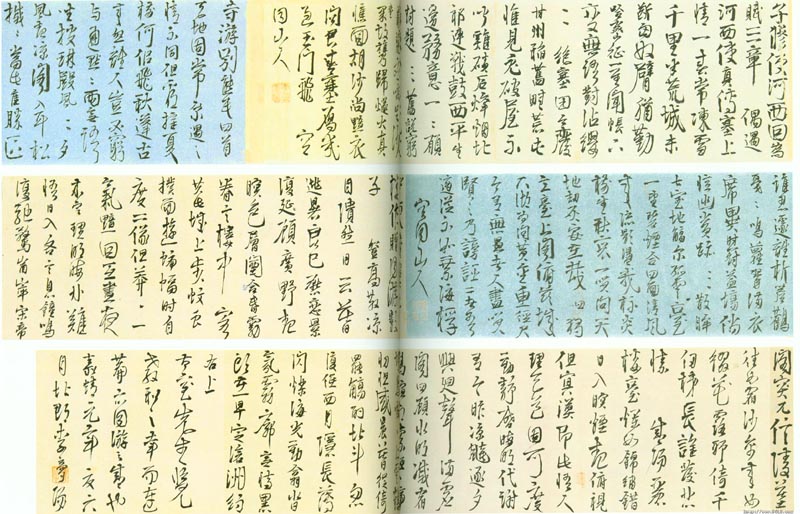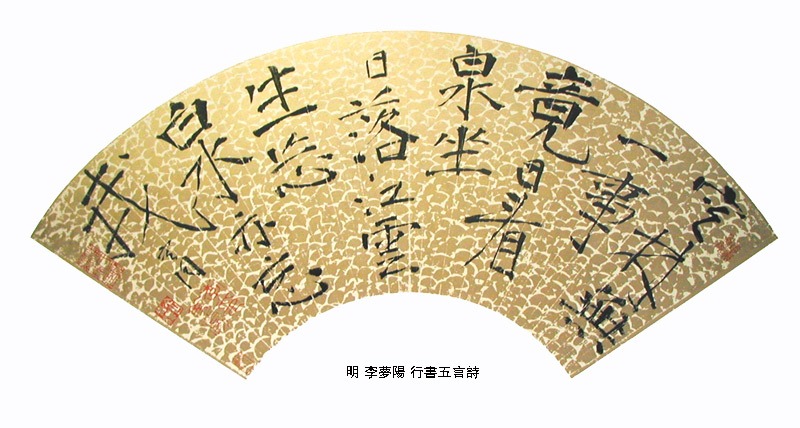Li Mengyang (1473-1530) was a writer of the Ming Dynasty. The word Xianji, the number Kongtongzi. A native of Qingyang (now part of Gansu). Born into a humble family. His great-grandfather was married to the Wang family, and his father restored the surname of Li. In the sixth year of Hongzhi (1493), he ranked first in the Shaanxi Provincial Examination and was awarded Jinshi in the following year. Because of the loss of his parents, he has to keep the rules at home. It was not until the eleventh year of Hongzhi that he served as the head of the household department, and later moved to doctor. In April of the 18th year of Hongzhi's reign, he was imprisoned in Jinyi Prison for impeaching the "powerful" Zhang Heling. He was soon released and fined three months' salary. After being released from prison, when he met Zhang Heling on the way, Li Mengyang whipped his horse whip and knocked off two of his teeth, which shows his tough attitude of hating evil as much as hatred. In the first year of Zhengde (1506), he was relegated to Shanxi Chief Secretary for writing an impeachment memorial against Liu Jin for Shangshu Han. Soon after, he was imprisoned for other matters. Lai Kanghai interceded and was released. After Liu Jin's defeat, he resumed his original official position and moved to Jiangxi to study as deputy envoy. Later, he wrote "Yangchun Academy Notes" for Zhu Chenhao and his book was reduced.
Li Mengyang's Yuefu and Gexing have made considerable artistic achievements. During the Hongzhi and Zhengde years of the Ming Dynasty, together with He Jingming, Xu Zhenqing, Bian Gong, Wang Tingxiang, Kang Hai, Wang Jiusi and others, he put forward the slogan "Literature must be from the Qin and Han Dynasties, poetry must be from the prosperous Tang Dynasty", advocating that ancient poetry should be studied from the Wei and Jin Dynasties, and modern poetry should be studied from the prosperous Tang Dynasty. The purpose is to clean up the boring style of Taige style and strive to restore the independent status of literature itself. His ideas had great influence and he was the leader of the "First Seven Sons" of the Ming Dynasty.
He is the author of 66 volumes of Kongtongji.

Li Mengyang's "Book of Poems in Running Script" on paper

Li Mengyang's "Fan of Five Character Poems in Running Script" collected by Shanghai Museum








